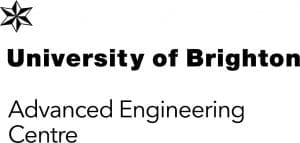Dr Penny Atkins has published an agenda-setting report looking at the role hydrogen engines can play to slash carbon emissions in the road freight sector.
Dr Atkins is Principal Research Fellow at the University of Brighton’s world-leading Advanced Engineering Centre, and a leading researcher in the field of hydrogen engines.
Dr Atkins’ report – Can Hydrogen Engines Support Decarbonisation in the Heavy Duty Sector? – puts a spotlight on the often overlooked need to find effective green solutions for trucks, alongside surging sales for smaller battery electric and hybrid vehicles.
This chimes with the major hydrogen strategy plans published by the UK government this week, which envisages a UK-wide hydrogen economy unlocking £4 billion of investment and creating over 9000 high-quality jobs by 2030 – potentially rising to 100,000 jobs and up to £13 billion by 2050. The government strategy suggests 20-35% of the UK’s energy consumption by 2050 could be hydrogen-based.
Heavier, long range vehicles contribute nearly half of freight emissions – but battery electrification is challenging for them due to large battery mass and volume required, which leads to reduced payload capacity, increased vehicle costs and reduced utility due to long charging times. The high power and energy demands of heavy duty vehicles – plus their rigorous and varied usage patterns – are also likely to require a broader range of technology solutions.
Hydrogen fuelling provides a viable alternative thanks to the higher energy density of hydrogen compared to lithium-ion batteries, as well as short refuelling times. Interest in hydrogen as a transport fuel is also being driven by initiatives such as the European Hydrogen Road map, which envisages hydrogen providing a quarter of EU energy by 2050 across transport, heat, industrial and power generation sectors. The UK government, meanwhile, is aiming to reduce UK annual total vehicle CO₂ emissions by three million tonnes by 2030, with hydrogen seen as fundamental to reaching net zero in this sector.
Brighton and Hove has been one of the cities pioneering buses powered by hydrogen fuel cell (H2FC) technology, though technical and commercial issues remain to be overcome before they can be adopted by the mass market. A complementary approach involves hydrogen internal combustion engines which could provide cost-effective heavy duty vehicles with near zero tailpipe emissions of toxic or greenhouse gases in the next five years.
Dr Atkins said: “Roll out of hydrogen-powered engines in the UK could bring forward the use of hydrogen powered trucks, driving the rapid decarbonisation that is so vital to mitigate climate change. Development and manufacturing of these engines in the UK would also build on our strong engine supply chain, safeguarding highly-skilled jobs across the country.”
Funding for Dr Atkins’ report was provided by Research England Strategic Priorities Fund and the Advanced Propulsion Centre, who work with industry and government to fund and influence the development of net-zero automotive innovation in the UK.
Philippa Oldham, Stakeholder Engagement Director at the APC, said: “There is definitely a role for hydrogen in net-zero emission road transport, providing potential solutions to typically difficult to decarbonise vehicles such as heavy duty, long distance and off-highway plant machinery used in construction or agriculture.
“The UK already has a strong supply chain to build on and is well positioned to capitalise and lead on further developing hydrogen products for use in transport. We currently fund several projects looking at different hydrogen applications including fuel cells and combustion engines. We welcome this report, particularly the recommendation for further analysis of the technology impacts and continued investment in research and development.”
Funding for Dr Atkins’ report was provided by Research England Strategic Priorities Fund.
Download the report, Can Hydrogen Engines Support Decarbonisation in the Heavy Duty Sector?







Leave a Reply